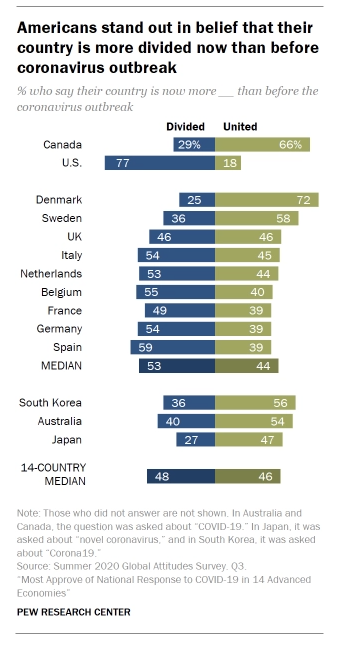Fostering Civility at the Library
One of the best things that public libraries provide for their communities is a public space to exist. People find other people, programs, information, and new ideas just from being at the library. Human connections develop in public spaces and just the fact that anyone can access the public library and use its resources, establishes the public library as one of the most important investments that a community can make. As we put a close on the year 2020, PEW research shows that many United States citizens believe that people are more divided than before the start of the pandemic.

Public libraries are considering how to handle the divide. There is the Choose Civility initiative from the Urban Libraries Council; Public Libraries magazine focused on Civic Engagement Activities in its Sept/Oct 2020 issue; and the April 2019 issue of Public Library Quarterly issue lists the Top Ten Challenges Facing Public Libraries with a decline in civil engagement as challenge number three. Across the country, civility has become the talking point hot on the lips of public librarians. How do we foster civility in the library and keep our public space civil?
The Institute for Civility in Government defines civility as, “the hard work of staying present even with those with whom we have deep-rooted and fierce disagreements.” Civil originates from the Latin word for citizen, or member of a community. It is important to remember that civility is not an individual characteristic, but a social construct within a community. The ability to take part in the hard work of engaging with other members of the same community–despite having fierce disagreements–is not a light task. Though it is imperative that public libraries work towards this goal, it is not the point of this article. Fierce disagreements between individuals is what causes incivility and many US citizens believe that we, as a country, are more divided, so instead, this article is about how US citizens agree on most topics.
According to a Gallup poll, 72% of registered voting Americans believe that same-sex relationships should be legal and 67% believe same-sex marriage should be legal and have the same rights as cis-unions, and a Gallup article shows that 87% support increasing government funds for infrastructure.
The Keiser Family Foundation’s (KFF) most recent polling about healthcare shows that 79% of the public supports the ACA coverage of pre-existing conditions as well as 69% supporting Roe v. Wade. Most notably, 84% of Americans trust scientists with accurate information on COVID-19 and 86% trust scientists in general. These statistics show that perhaps Americans are not so divided on many issues. In fact, Americans love scientists until politics get in the way.
The public forum needs civility because in order to have a conversation on any topic, individuals must be willing to put aside the idea of the self and replace it with the idea of the group. There are many instances in day-to-day life where we apply this thinking including letting individuals off of an elevator before getting on; walking on the right hand side so that opposing foot traffic has an opening; or even just stopping at a stop sign. Adherence to these basic rules provides an environment where people know what to expect and how to behave in the interests of the group over the interests of the individuals. Public libraries are a public space that must encourage civility and social rules so that patrons know what to expect and how to behave. Understanding that we are not entirely divided, that we agree on many points, may help public libraries restore or maintain this civility.
Tags: challenges facing public libraries, choose civility, civic engagement at the library, civil engagement, civility in government, divided country









